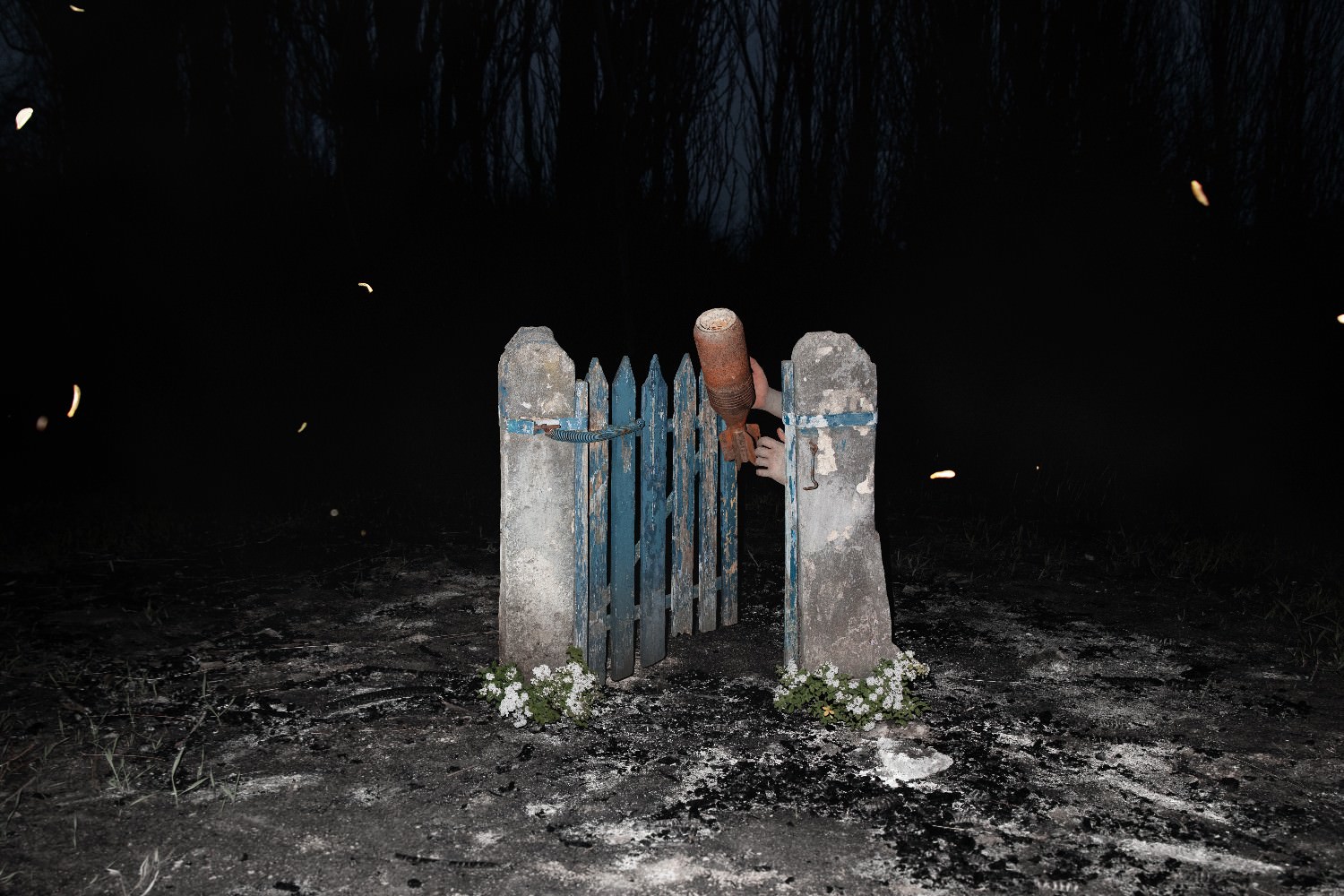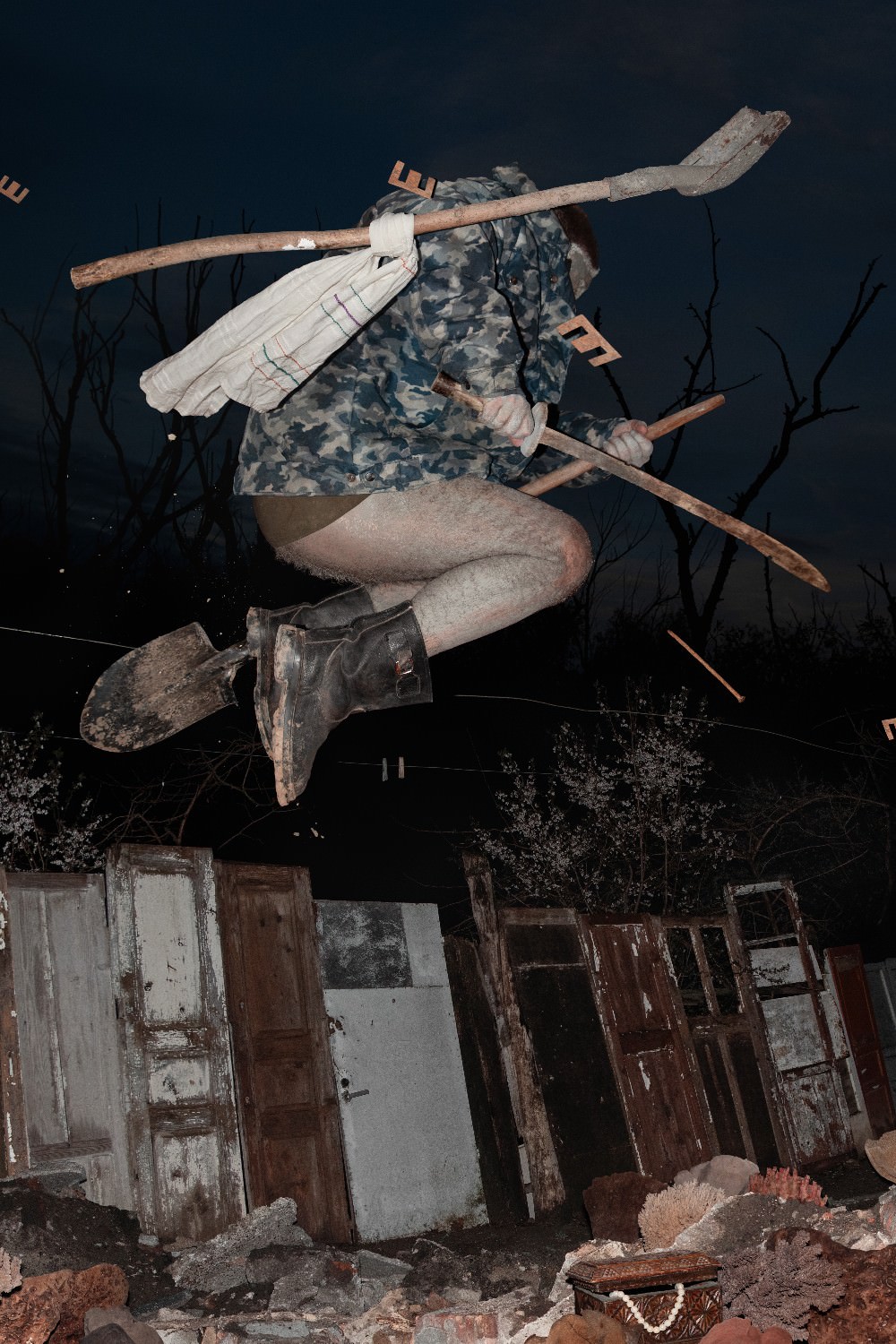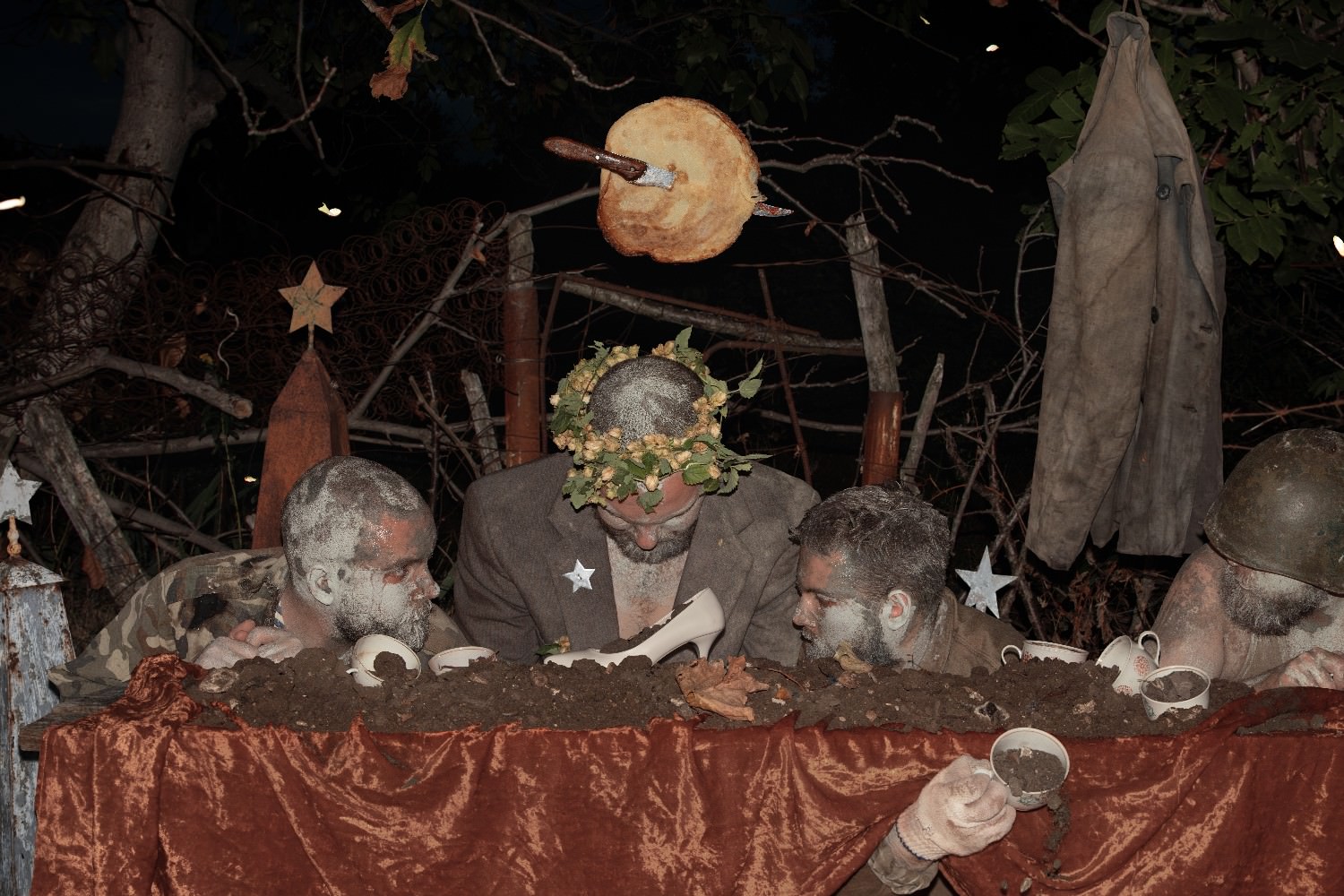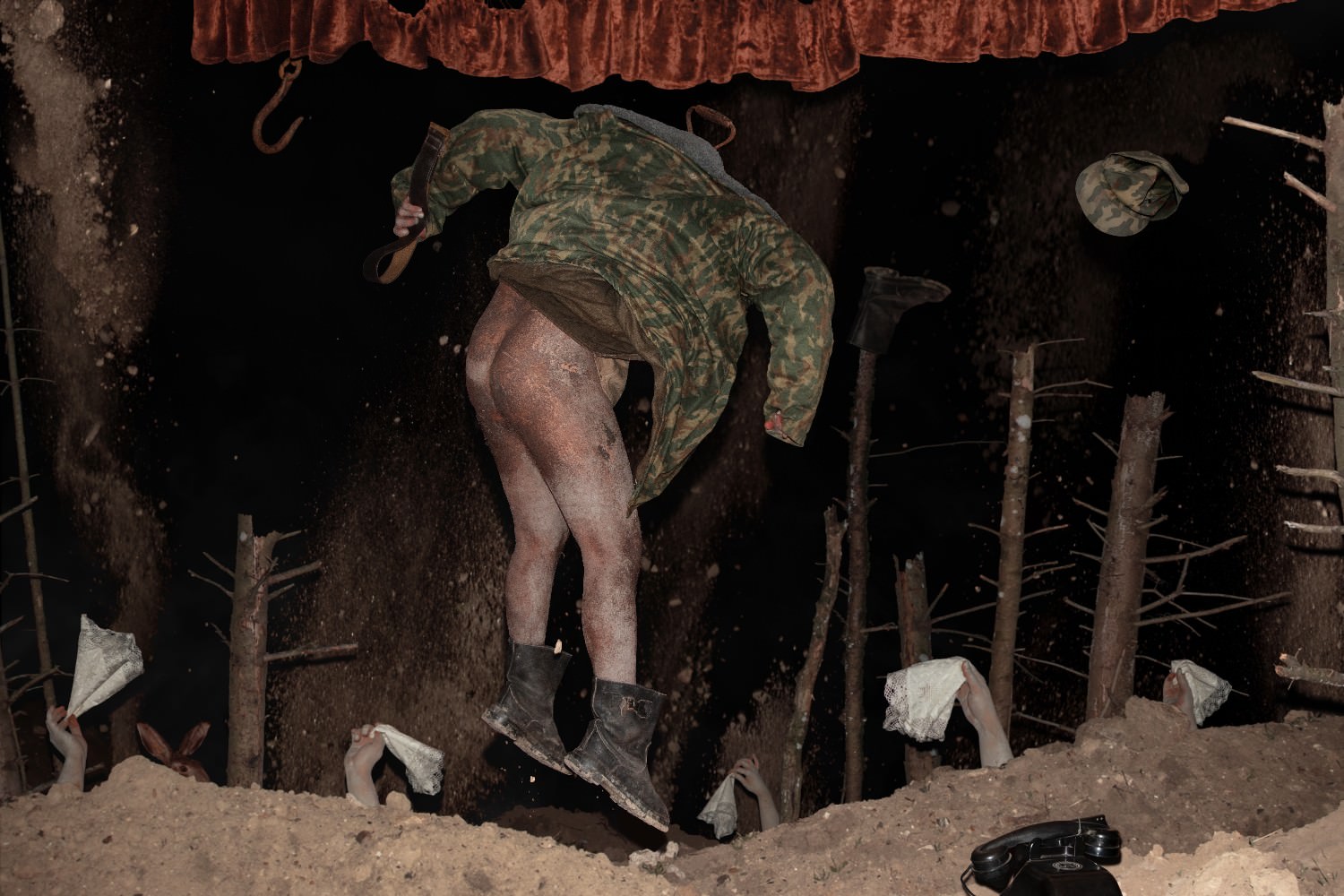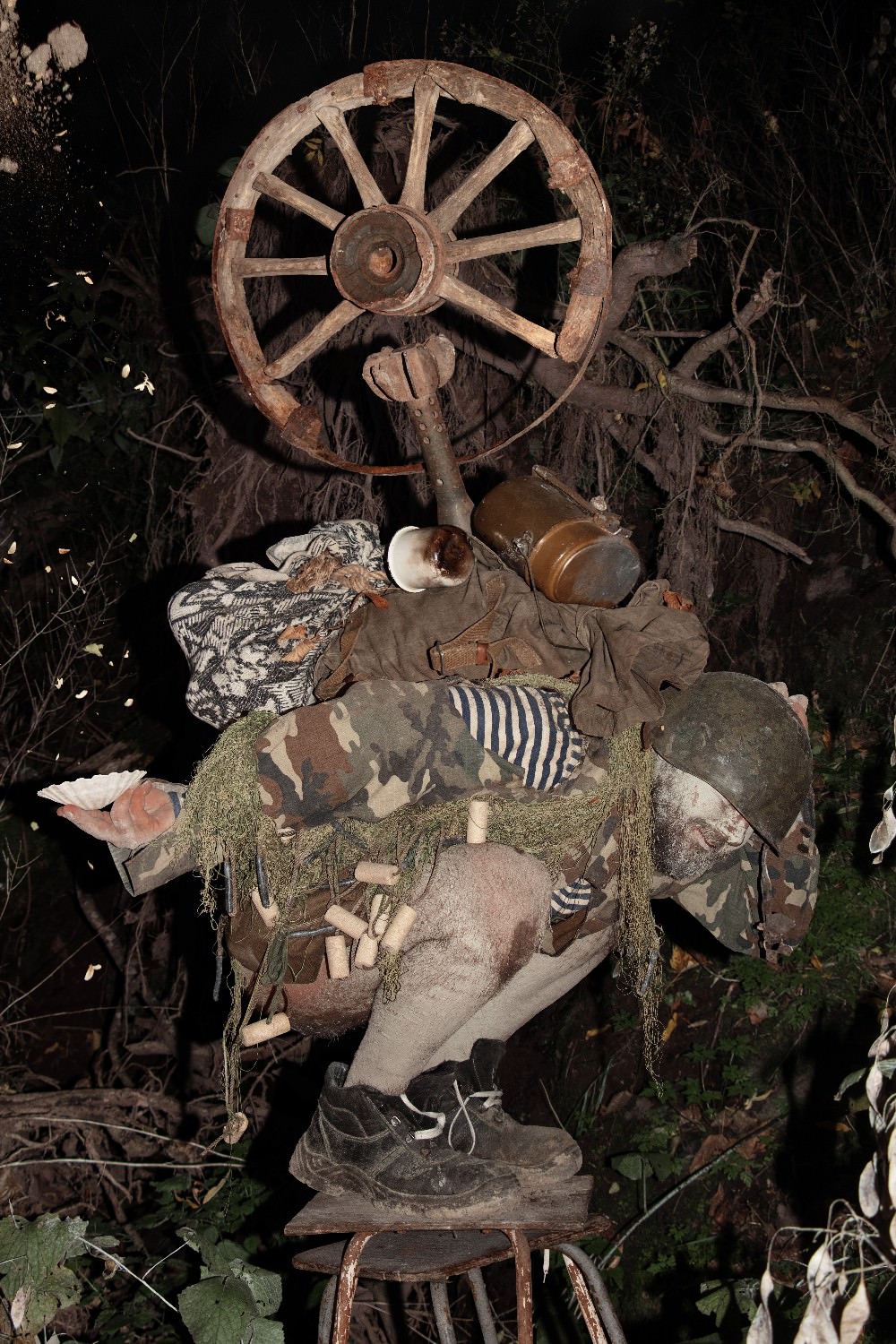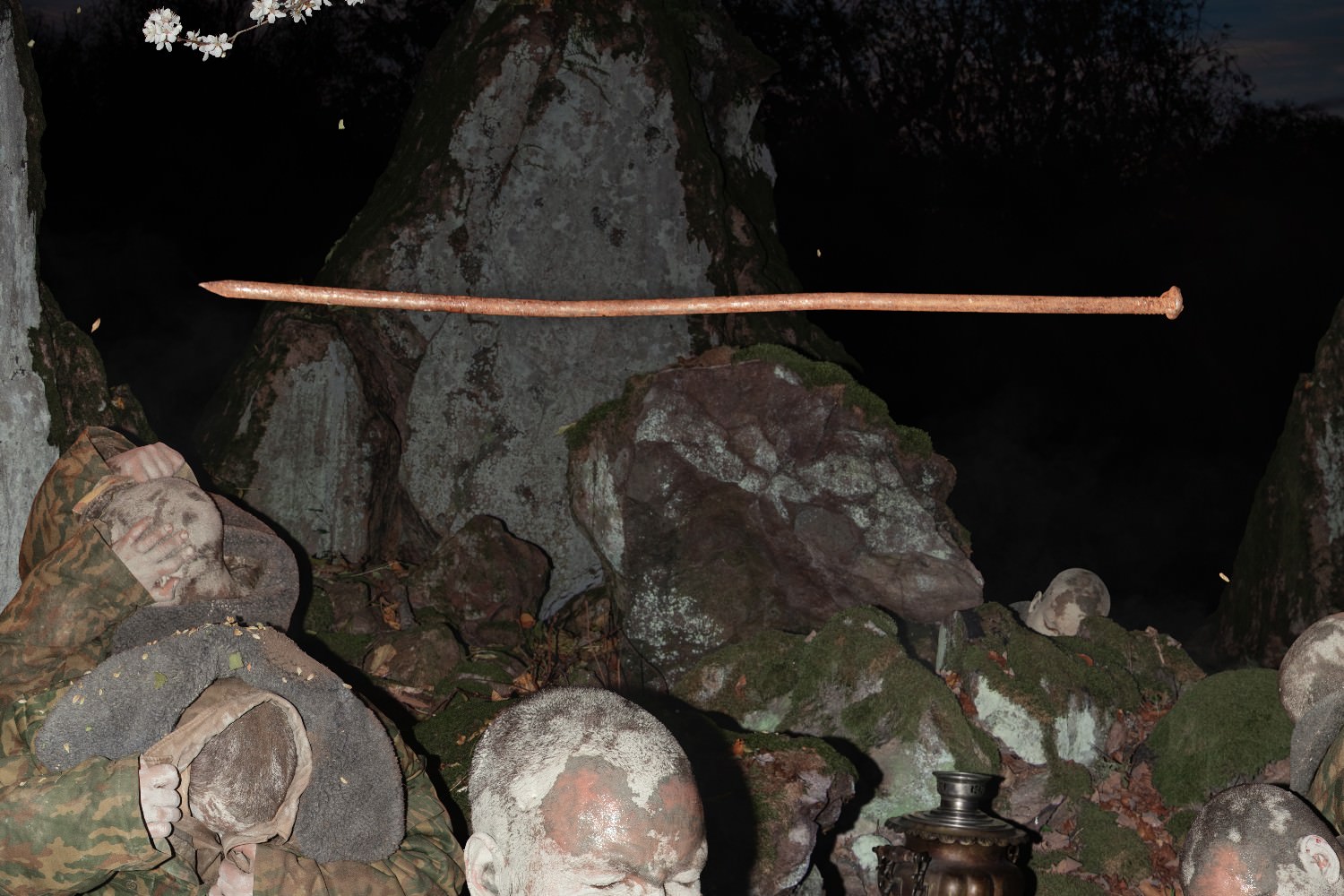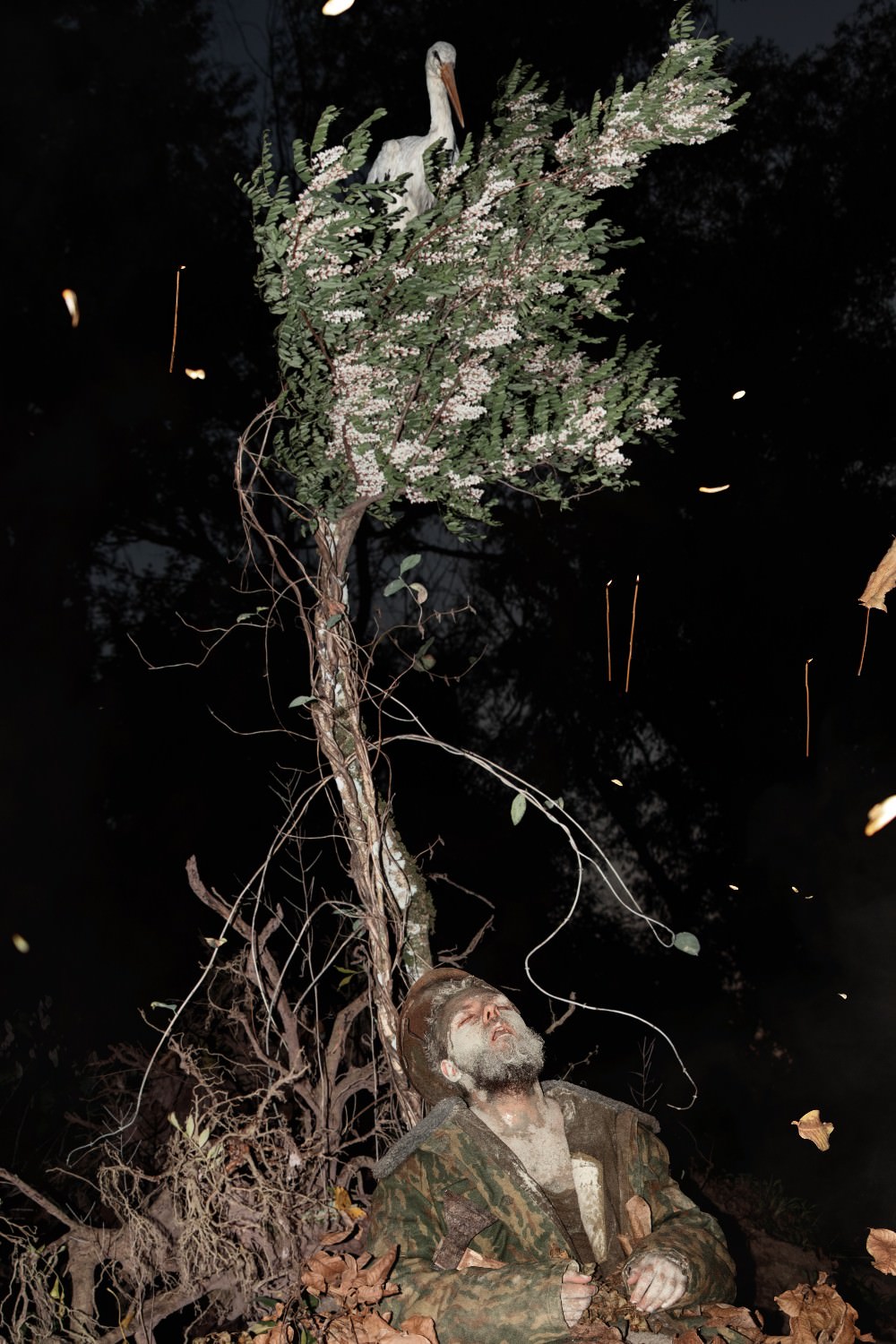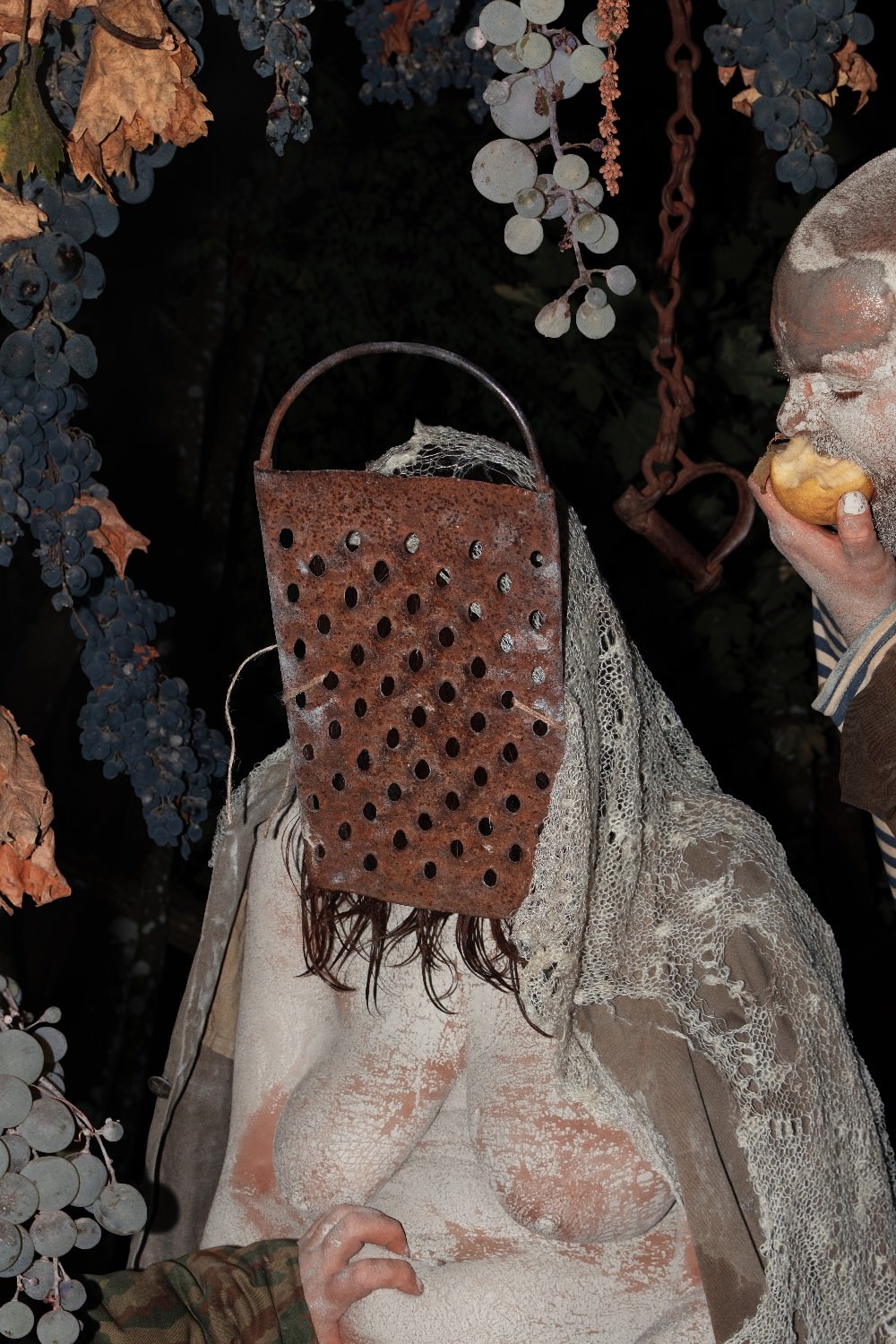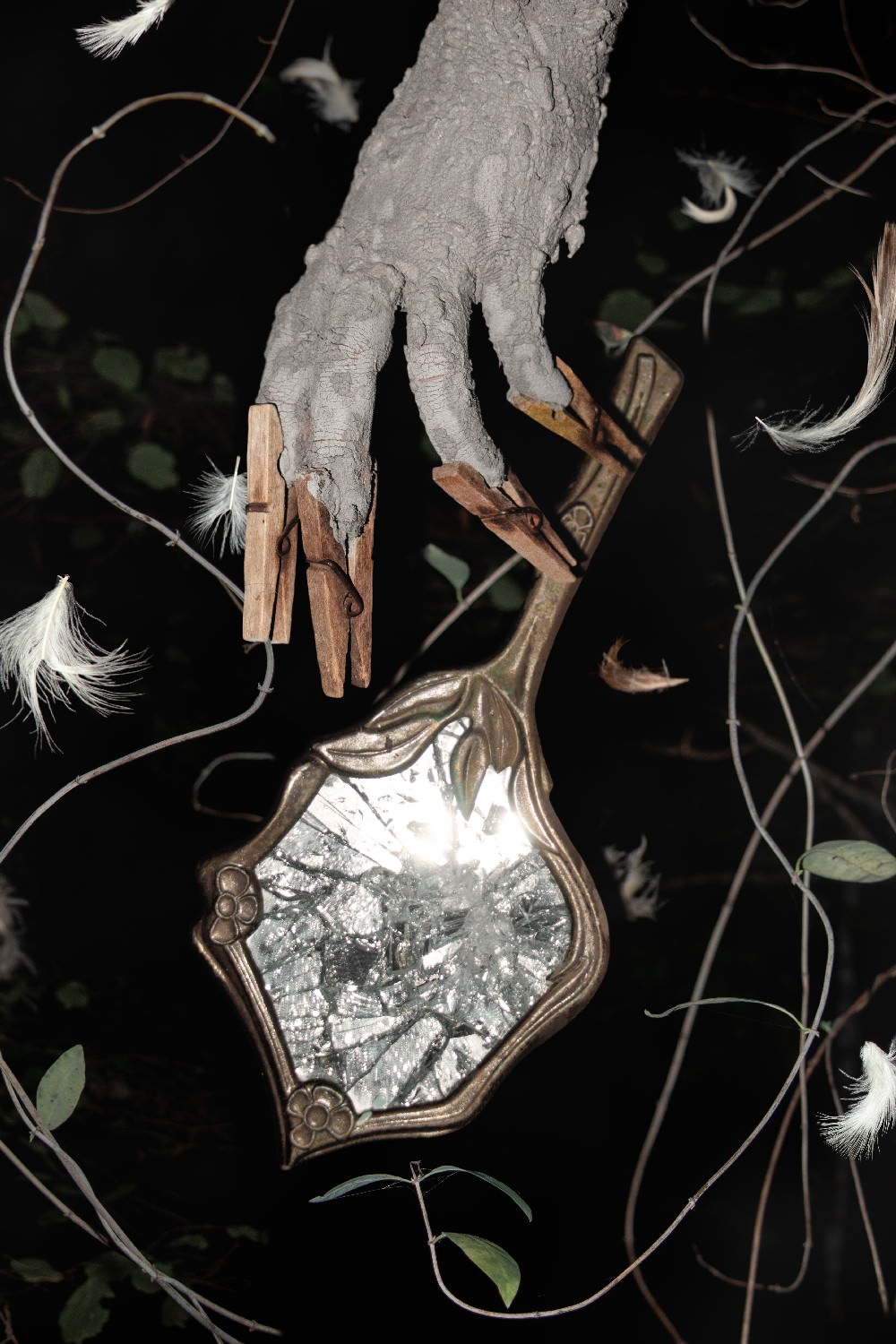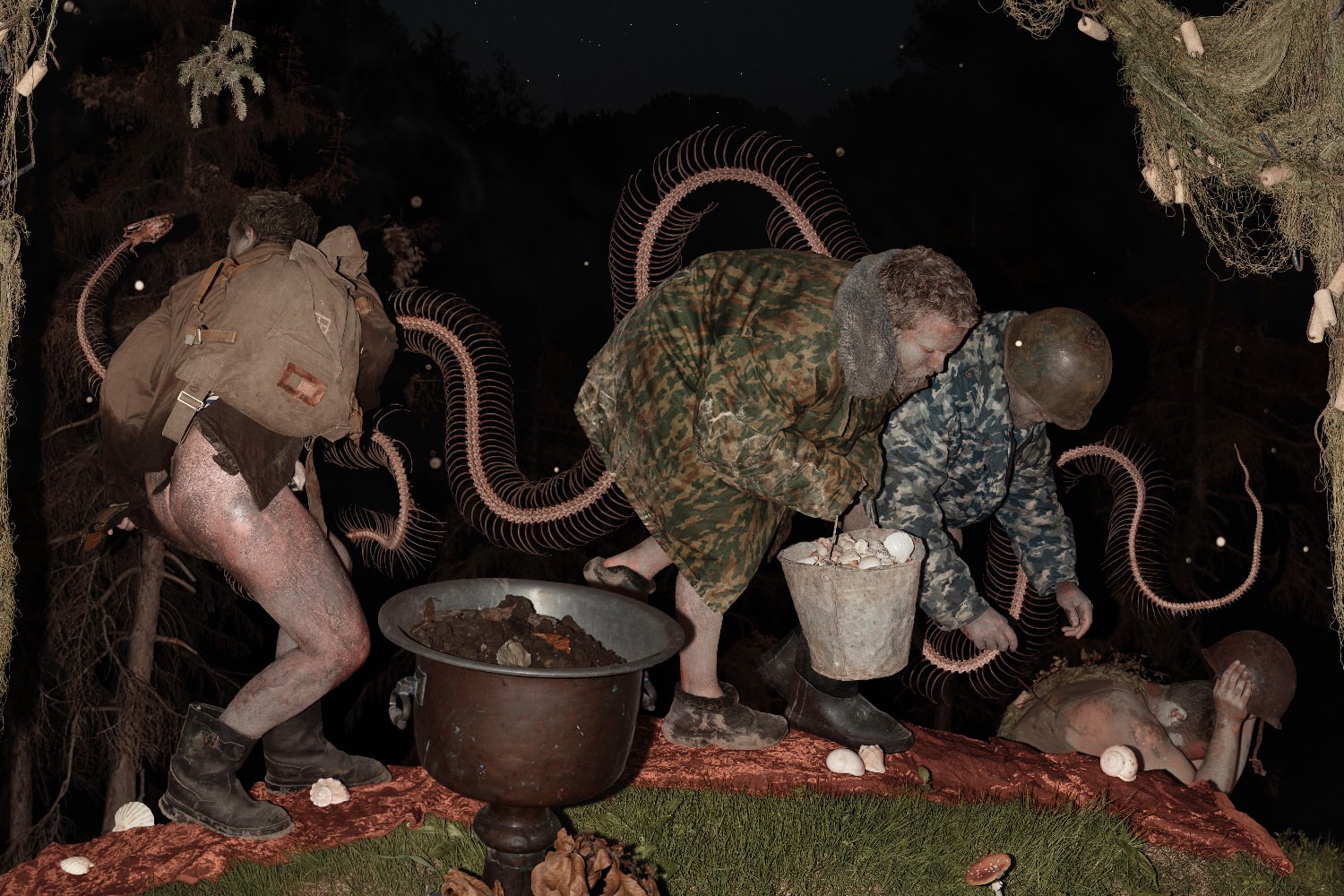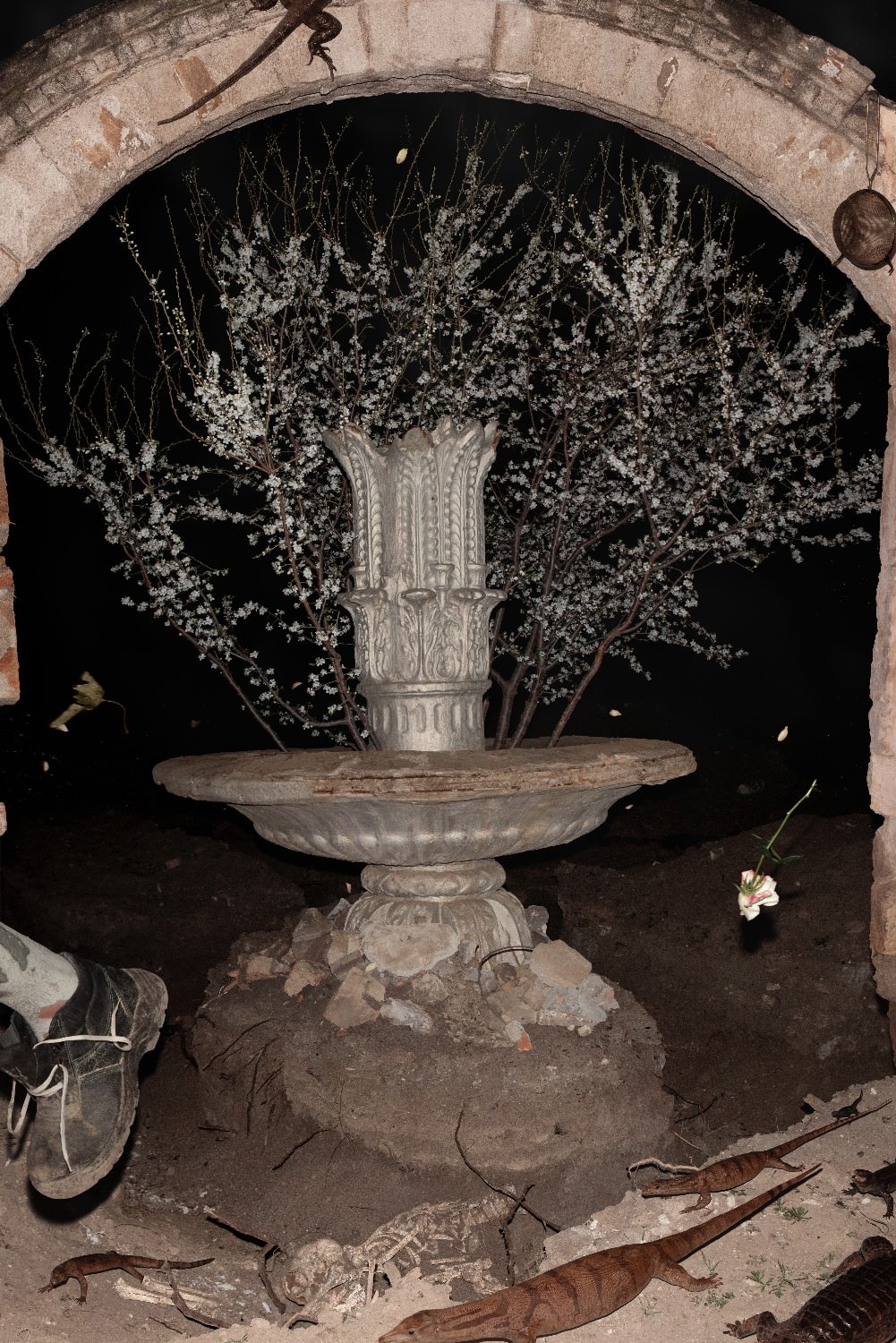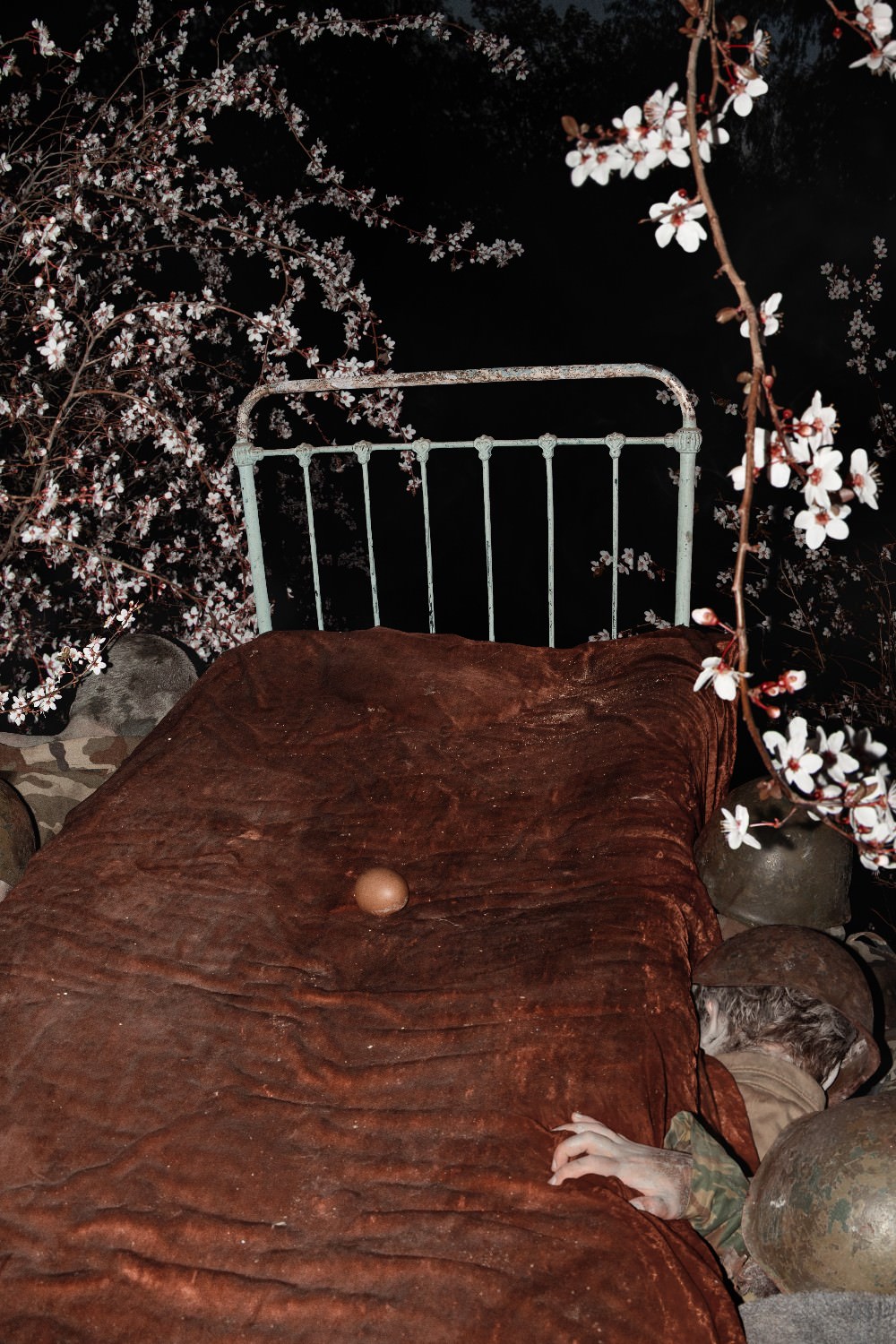Carolina Dutca, Valentin Sidorenko
No Man’s Wedding, 2024
‘No Man’s Wedding’ is a twisted wonderland filled with symbols, rituals and games, which from time immemorial imitated life and death. The avenue we’ve chosen is that of a fairy tale. What is a fairy tale? It’s a repository of archetypes and mythological narratives. These narratives offer codes that aid in deciphering the existential motives of the war. In this story, the man goes to war like a fiancé goes to a wedding. He goes down to the afterlife trying to cheat death, hides out away from it and laughs. He collects shells (an ancient symbol of baptism). But is he worthy of holy communion or is his baptismal font filled with soil?
Biography
Since 2019 the artist duo Carolina Dutca (*1995, Bender, MD) and Valentin Sidorenko (*1995, Gornyak, RU) live and work in Moldova. Dutca studied art and documentary photography at the Fotografika Academy St. Petersburg. Sidorenko studied animation at the Russian State University of Cinematography in Moscow and graduated from the Fotografika Academy St. Petersburg. Among others the duo took part in festivals and exhibitions at the Sharjah Art Foundation (AE), Fondation François Schneider (FR) and the Manuel Rivera-Ortiz Foundation Les Rencontres d’Arles (FR).
No Man’s Wedding
Once upon a time a snake came to crawl in a soldier’s mind, and so she spake, mother-like: “Go to the place I dreamed of last night. There’s a bride for you, and her family ain’t too lowly. Take her as your wife, and you’ll live a life of good and plenty. And should anyone ask you when the last time was you kept your own counsel, look him in the face and dark will fall.”
A soldier’s meek as a lamb: so, he did put on his soldier boots and out he stepped, as if crossing the threshold of day. For they weren’t in the habit of latching the latch. ‘Round he looked and nigh he saw a stranger’s home on a steep hill with nobody’s wedding in full swing. At the head of the table was an ill wheel, spinning the guests as it pleased. The only guests were five hundred heads of peasant men, two priests, and an old dog under their feet. They each had a place at the table, and on the table, I tell you, between a pork rib and a herring tail, a lone short candle sat rocking.
“I’m nobody’s guest here, but I won’t strand my soul any-old-where either,” the soldier said to himself and stepped on the fine red road, where he and the guests ate gruel with one and the same spoon and washed in the same stove under birch twigs.
So he guested-about for a year and a few, and once he settled down, he heard the old dog ask him: “Do you know any fools among soldiers?”
The soldier-man looked into the dog’s eyes, and dark fell. The candles died and the spirits changed. It was time to pick a bride to plight his troth. Soon, the soldier stood at the altar in his dress jamket. He had an icon in his hands and a white towel under his feet. The groomsmen led a maid-bride to him. But that maid was dead-mute. Even the veil over her face hung breathless. The ill wheel spun ever faster and the priests cheered up. Now, the groom could keep it no longer: “Do you want that I should eat a nail?”
He took out a nail and shoved it down his own throat; but the nail freed itself and struck against the wheel. The wheel rolled over the doorstep; under the doorstep, forefathers awoke from sleep; and the forefathers felt wroth for the men; and the men got a taste of the dirt; and the dirt showed the gifts of the earth; and the gifts were bequeathed to the priests; and the priests took to prayer at once; with the prayer, the candle awoke; and with fire the candle burst forth; and the fire undressed the soldier’s bride, and the bride’s snakeskin scales gleamed. The old snake howled and burrowed into the deepest burrow.
The castle ended, the platters emptied, the red wine was stanched. The men saw what had come to pass – and all their cheer died. They called for a hatchet and spades. The hatchet came walking and made a bed. The spades came hopping and dug a hole. The soldier looked down into the cold nothingness and fell to his knees. He knew at once that the end of his living was near. And then, the skies opened above him. A hoary heron flew down from that crack, dropped a seed into the hole, and out of that seed a tree grew tall, of the kind that grants but one wish.
“I thirst!” the solder-man wished so, and the hill broke in two like a stale loaf. The soldier threw himself on the hard bread and turned into a samovar. So he sat there: no arms, no legs. He would cry, but he had nothing to cry with. And then, it was God’s daylight, and a warm rain came down. And that was solace.
the tale translated by Anna Krushelnitskaya
